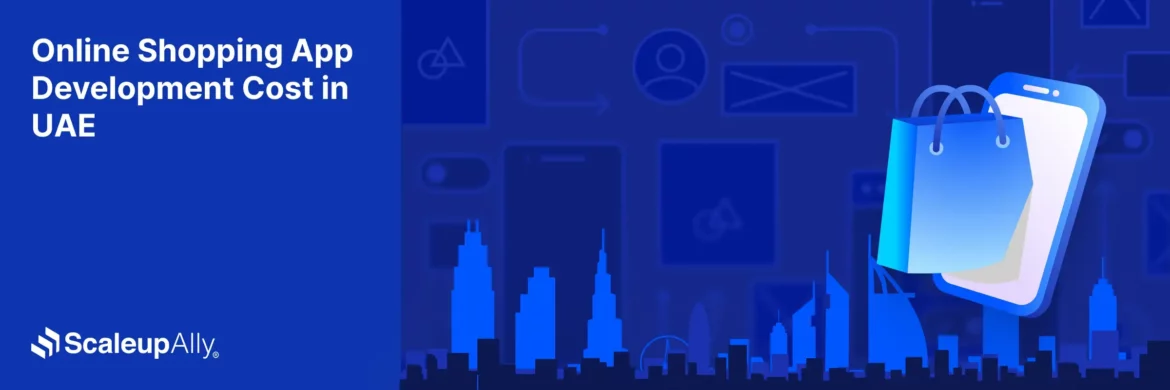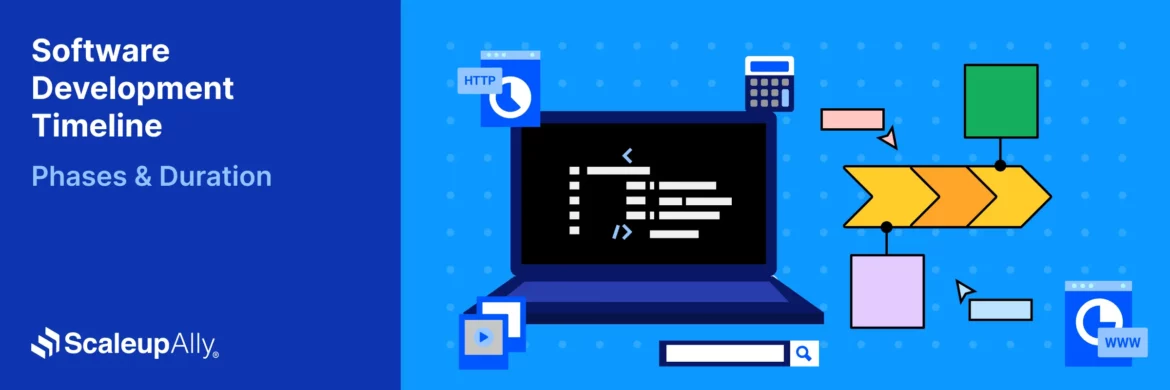
10 Most Used Mobile App Development Frameworks
Suprabhat Sen | December 27, 2023 , 10 min read
Table Of Content
In early 2022, more than 5.5 million apps were on the Google Play and Apple App Store. The market for mobile apps keeps getting bigger and won’t go away soon. If you want to develop an app, knowing what technologies are popular in app development can help you.
This article will discuss the most common app development frameworks for mobile apps in 2025.
Key Takeaways
- Selecting the right mobile app framework ensures efficiency, scalability, and a smooth development process while reducing overall project risks.
- Frameworks offer structured libraries and reusable components that accelerate timelines and deliver consistent performance across platforms.
- Native applications provide unmatched speed and user experience, though they require dedicated builds for iOS and Android platforms.
- Web-based applications present a cost-effective and easy-to-maintain option, ideal for businesses seeking faster market entry.
- Hybrid applications strike a balance by enabling cross-platform reach while retaining essential features that enhance user engagement.
What is a Mobile App Framework?
A Mobile App Framework is a software framework designed to aid the development of mobile applications. It provides a structured set of tools, libraries, and components that facilitate and streamline app development. Mobile app frameworks are essential for developers because they abstract away common tasks, allowing them to focus on their applications’ unique features and functionalities.
Types of Mobile App Development Frameworks
Several digital operating systems like Android, Windows, and iOS exist today. They offer a variety of mobile applications that come in different forms and serve various purposes, such as shopping or gaming.
Mobile apps can be grouped into three categories based on how they work on a smartphone:
1. Native Apps
These apps are designed to work on specific operating systems like Android or iOS. They use the device’s features like GPS, camera, and memory to provide their services.
Some examples of Native Apps include Instagram and Duolingo
2. Web Apps
Web apps are software stored on a remote server and accessed through a web browser. Examples include email clients like Gmail, online shopping platforms like Amazon, blogs, auction sites, and instant messaging services like Messenger.
3. Hybrid Apps
Hybrid apps are installed on smartphones like other mobile apps. What sets them apart is their combination of native app features and web app components. They can be developed using native app tools or hybrid app development frameworks.
For example, Uber and Evernote are hybrid apps
Importance of choosing the right framework for a project
The choice of a framework is not just a technical decision but a strategic one that impacts various aspects of a project’s lifecycle. It sets the foundation for efficient development, smooth maintenance, and the application’s overall success in meeting user expectations and business objectives.
Here are a few benefits of choosing the right framework:
1. Performance and User Experience
The framework directly impacts the performance and responsiveness of the application. Choosing a framework that aligns with the project’s requirements ensures a smooth and enjoyable user experience.
2. Cross-Platform Compatibility
For projects targeting multiple platforms, a cross-platform framework can be instrumental. It allows developers to write a single codebase that can be deployed on various operating systems, saving time and resources.
3. Scalability
As projects grow, scalability becomes a crucial factor. The right framework should accommodate increased users, data, and features without compromising performance.
4. Cost-Effectiveness
The choice of framework influences project costs. Some frameworks may require licensing fees, while others may have a more significant learning curve for the development team. Evaluating the long-term costs is essential for budget planning.
5. Security Considerations
Different frameworks have varying levels of security features. Choosing a framework with robust security measures is essential, especially for applications handling sensitive data.
10 Most Used Mobile App Development Frameworks
Here are the 10 widely used mobile app development frameworks in no particular order.
1. React Native
Overview:
React Native, developed by Facebook, is a JavaScript framework that allows for the creation natively-rendered mobile applications for both iOS and Android platforms. The framework’s popularity is rooted in its efficiency and cost-effectiveness, enabling businesses to develop cross-platform apps with a single codebase.
Why Choose React Native:
- Single Codebase: Develop for iOS and Android simultaneously.
- Native Performance: Provides a native-like performance experience.
- Community Support: Large and active community for problem-solving.
2. Flutter
Overview:
Flutter, the brainchild of Google, is an open-source UI software development toolkit. Written in Dart, it empowers developers to create natively compiled mobile, web, and desktop applications from a single codebase.
Why Choose Flutter:
- Hot Reload: Quick experimentation and bug fixing.
- Beautiful Designs: Rich set of customizable widgets for expressive UI.
- Fast Development: Accelerates the development process.
3. Swift (for iOS) and Kotlin (for Android)
Overview:
For businesses with a more platform-specific approach, Swift and Kotlin are the languages of choice for iOS and Android, respectively. Both languages are robust and efficient and offer the advantage of being native to their respective platforms.
Why Choose Swift and Kotlin:
- Native Experience: Leverage platform-specific features seamlessly.
- Performance: Optimized performance for the target platform.
- Community Backing: Active communities and continuous updates.
4. Xamarin
Overview:
Owned by Microsoft, Xamarin is an open-source framework for building modern, performant, and native-looking iOS and Android applications using C# and the .NET framework.
Why Choose Xamarin:
- Code Reusability: Share a significant portion of code across platforms.
- Native Performance: Provides a native user experience.
- Microsoft Integration: Seamless integration with Microsoft technologies.
5. PhoneGap / Apache Cordova
Overview:
PhoneGap, also known as Apache Cordova, is a mobile app development framework that enables developers to build applications using web technologies like HTML, CSS, and JavaScript.
Why Choose PhoneGap:
- Web Technology Stack: Familiar with web development languages.
- Cross-Platform Development: Develop for multiple platforms with one codebase.
- Access to Device Features: Utilize native device features through plugins.
6. NativeScript
Overview:
NativeScript allows developers to build native mobile applications using JavaScript, TypeScript, or Angular. It provides direct access to native APIs and UI components, ensuring a native user experience.
Why Choose NativeScript:
- Native Performance: Direct access to native APIs for optimal performance.
- Cross-Platform Development: Code once and deploy on both iOS and Android.
- Angular Integration: Seamless integration with the Angular framework.
7. Vue Native
Overview:
Vue Native is a framework for building cross-platform mobile apps using Vue.js. It combines the simplicity of Vue.js with the capabilities of building native mobile apps, providing an excellent option for Vue enthusiasts.
Why Choose Vue Native:
- Vue.js Integration: Leverage the simplicity and flexibility of Vue.js.
- Component-Based: Structure your app using Vue components.
- Progressive Framework: Suitable for both small and large-scale projects.
8. Corona SDK
Overview:
Corona SDK is a cross-platform mobile development framework that uses the Lua programming language. It is known for its simplicity and efficiency, making it a preferred choice for game developers and those seeking rapid app development.
Why Choose Corona SDK:
- Rapid Development: Swift development cycle for quick prototypes.
- Real-Time Testing: Instantly preview changes in real-time.
- Graphics and Gaming: Excellent support for graphics and gaming applications.
9. jQuery Mobile
Overview:
jQuery Mobile is a touch-optimized web framework that enables the development of responsive web and mobile applications. It is built on the popular jQuery library, providing a unified user interface system across various platforms.
Why Choose jQuery Mobile:
- Cross-Platform Compatibility: Develop once, deploy everywhere.
- Lightweight: Minimal learning curve and lightweight library.
- Theming: Easily customizable themes for a personalized look.
10. Sencha Touch
Overview:
Sencha Touch is a high-performance HTML5 mobile application framework. It allows developers to create feature-rich web applications that run on various platforms, providing a native app experience.
Why Choose Sencha Touch:
- Robust UI Components: Extensive set of pre-built UI components.
- MVC Architecture: Follows the Model-View-Controller architecture.
- Data Package: Integrated data package for seamless data integration.
Factors to consider while choosing a Mobile App Development Framework
Choosing a mobile app development framework is a critical decision that can greatly impact the success of your project. Several factors should be carefully considered to ensure the selected framework aligns with your project’s requirements and goals.
Here are some of the key factors to consider:
1. Project Requirements
- App Type: Consider the type of application you’re building (e.g., gaming, e-commerce, social networking). Different frameworks excel in different types of applications.
- Features: Identify the specific features your app requires, such as geolocation, push notifications, or offline capabilities.
2. Platform Compatibility
- Cross-Platform vs. Native: Decide whether you want to develop a cross-platform app (compatible with multiple operating systems) or native apps for each platform (iOS and Android).
3. Development Speed and Efficiency
- Rapid Development: Evaluate the framework’s features for speeding development, such as hot-reloading for quick iterations and debugging tools.
- Code Reusability: Consider frameworks that allow a high degree of code reusability across platforms.
4. Community Support
- Community Size: A large and active community indicates good support and a wealth of resources. It can be crucial for troubleshooting, sharing best practices, and staying updated on the latest developments.
5. Performance
- Native-Like Performance: Assess whether the framework provides native-like performance. Performance is critical for user satisfaction, especially in resource-intensive applications.
6. Security
- Security Features: Consider the security features provided by the framework. This is especially important if your app deals with sensitive user data or financial transactions.
7. Scalability
- Future Growth: Ensure that the chosen framework can scale with the growth of your application. This is vital for long-term success.
Conclusion
App development frameworks make it easier for developers to create applications and come up with new ideas on a large scale. Luckily, developers have many choices when building apps that work well on different devices and systems.
At ScaleUpAlly, we assist our clients in making mobile apps that help them connect with their customers more deeply. Depending on the specific needs of a project, like time, budget, and other factors, we select the best mobile app framework for our client. We’re a technology-neutral company and believe in using technology to create endless possibilities. Speak to our mobile application development experts to learn more about the top app development frameworks and how we can support your next project.
Frequently Asked Questions
Q. Are cross-platform apps as performant as native apps?
While cross-platform frameworks have improved significantly in performance, there might be slight differences compared to native apps. However, the performance gap is often minimal, and the advantages of code reusability can outweigh the minor differences.
Q. Do I need different frameworks for iOS and Android app development?
It depends on the approach you choose. Native frameworks like Swift (iOS) and Kotlin (Android) are platform-specific. Cross-platform frameworks like React Native and Flutter allow you to use a single codebase for both platforms.
Q. What is the difference between native and cross-platform frameworks?
Native frameworks (iOS or Android) are platform-specific, providing direct access to platform features. Cross-platform frameworks enable code reuse across multiple platforms, allowing developers to write code once and deploy it on various operating systems.
Related Blogs

Top 20 Emerging Technologies of 2026
Discover the top 20 emerging technologies of 2026. Explore which innovations are driving change across healthcare, finance, manufacturing, and other crucial industries.
ScaleupAlly Team
Dec 16 ,
9 min read

Online Shopping App Development Cost in UAE | Pricing & Factors Explained
Understand UAE online shopping app development costs in 2025 with pricing ranges, influencing factors, hidden fees, timeframes, and expert savings tips.
Suprabhat Sen
Nov 29 ,
13 min read

Software Development Timeline: Phases, Duration & Estimation Guide
Understand the software development timeline with phase durations, key factors, hidden delays, and practical methods to estimate project time.
Suprabhat Sen
Nov 29 ,
16 min read


